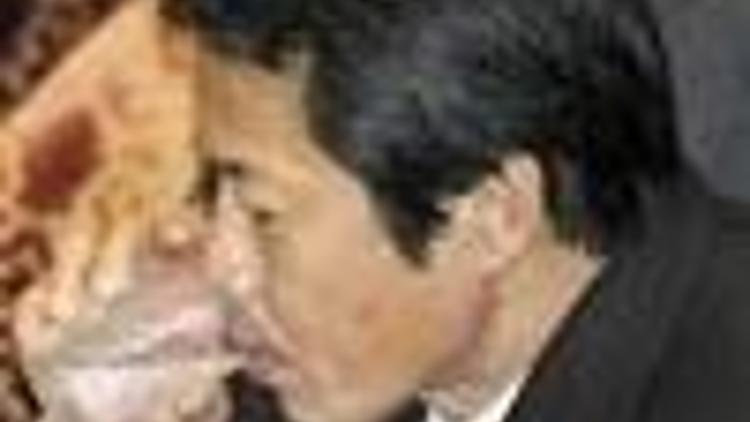Japan's finance minister quits, jolts government
Güncelleme Tarihi:

Japanese Prime Minister Taro Asos already shaky government was rocked Tuesday by the sudden resignation of his finance minister over allegations he appeared drunk after a recent G-7 meeting.
Finance Minister Shoichi Nakagawa, who has denied being drunk, offered his resignation late Tuesday after earlier in the day saying he would stay on until after parliament approves the budget for the fiscal year, probably in late April.
"I have resigned," said Nakagawa, one of the most prominent members of Asos Cabinet. "I decided that it would be better for the country if I quit."
"He made a difficult choice, and I respect his decision," Aso said.
The resignation was a huge embarrassment for Aso and a blow to Japan's efforts to deal with its deepening economic woes.
Economy Minister Kaoru Yosano will assume Nakagawas duties, the prime minister said.
Nakagawa has been under fire over allegations he appeared to be drunk at a news conference following the G-7 finance ministers meeting in Rome over the weekend. TV footage showed him slurring his speech and looking drowsy and confused.
Nakagawa has said he took cold medicine, which, along with jet lag, made him groggy.
His abrupt announcement, coming as Tokyo hosted Secretary of State Hillary Rodham Clinton, was seen as an attempt at damage control, but some analysts said they expect the situation to get tougher for Aso in the weeks ahead and political gridlock to worsen.
"The scandal was so humiliating that Nakagawa's resignation will not be enough," said political analyst Minoru Morita. "The opposition will now shift their target to Aso, pushing him deeper into the corner."
Opposition lawmakers had lodged a censure motion against Nakagawa and demanded he quit immediately. "He embarrassed himself in front of the world," said opposition leader Ichiro Ozawa.
Pressure for Nakagawa's resignation had been growing within Asos Cabinet as well.
"The TV footage was shocking," Consumer Minister Seiko Noda said. "A Cabinet minister must be fit and he needs more self control."
The political confusion was also likely to stall Japan's economic initiatives.
On Monday, Japan announced its economy shrank at its fastest rate in 35 years in the fourth quarter and shows no signs of reversing course anytime soon.
Japan's economy - the world's second-largest - has now contracted for three straight quarters and is almost certainly headed for a fourth.
To revive growth, Japan's parliament passed a contentious 4.8 trillion yen ($52.2 billion) extra budget in January that includes business tax credits and a cash payout of 12,000 yen ($133) per Japanese taxpayer. Aso has championed the idea, saying it will stimulate sagging consumer spending.
But critics have panned the handouts as a lavish waste of public money with limited impact. The resulting political wrangling has delayed implementation of the stimulus measures, which still await parliament passage of some related bills.
Nakagawa's resignation was expected to further embolden the opposition, which controls the upper house of parliament and could try to hold the bills hostage.
Along with a moribund economy and increasing joblessness, the scandal was the latest in a series of embarrassments that have plagued Aso, who has been in office only since late September.
Asos support ratings fell into the single digits in a recent poll, increasing speculation his days might be numbered.
The ruling party has tried to hold elections off and ride out the scandals. Several polls suggest that the opposition has a good shot at winning if elections are held soon, although the Liberal Democrats have controlled the government for virtually all of the past 54 years.
Elections must be held by the end of September, but can be called at any time.
"If elections were held right now, the opposition would win," said Takao Toshikawa, another political analyst.

